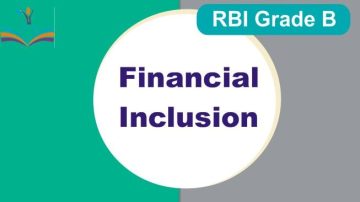
Financial inclusion – A requirement for all ages in India
Financial Inclusion means including people of all factions in the economic system of the country. Its main objective is to enable the financial system to reach out to even the remotest area of the country. The United Nations defines the goals of financial inclusion as:
Financial inclusion allows people to access a full range of financial services at a reasonable cost. The financial services may include savings or deposit services, payment, and transfer services, credit and insurance; safe transactions; choice of financial institutions, etc.
More than 70 years have gone by since India got Independence. Still, India is the second-largest unbanked populated country where only 35% of people have an account with a financial institution. India comprises approximately 650,000 villages, but only about 36,000 villages are said to have Bank access. The rest are still in the grip of ‘Seth’, ‘Sahukars’ and the other to cater to their financial needs. They are thus highly exploited at their hands.
In order to include the deprived people of financial benefits into the economic system of the country, Smt. Indira Gandhi nationalized banks in two phases on 19th July 1969 and on 15th April 1980. To accelerate the process of Financial Inclusion, Prime Minister Narendra Modi launched the Jan Dhan Yojana on August 28, 2014. It was the largest campaign that the country had ever witnessed; people from even the remotest area felt the benefits of getting associated with a financial system. Lakhs of people opened their bank accounts without any opening balance.
The Apex Bank RBI is committed to Financial Inclusion Mission. It has set its targets to allow its banks to open No Frill Bank Accounts which are such accounts that require no opening balance or a little balance. It will promote people to get connected with banks.
Secondly, RBI has allowed the banks to appoint Rural Intermediaries such as Business Facilitators (BFs) and Business Correspondents (BCs) who impart financial education to people. They also provide financial products and collect documents on behalf of the Bank. The use of Mobile Technology has boosted Financial Inclusion in the country. The encouragement of Small Payments Banks has proved to be another leap in this connection. Encouraged Electronic Benefits Transfer has encouraged people to open up accounts with banks. Above all, RBI has mandated banks to open at least 25% of their branches in unbanked rural areas where account opening has been made simple for the poor sections, street vendors and other migratory laborers. In the campaign of financial inclusion, banks have to open Customer Service Centres.
Thus, India is moving fast forward to availing banking facilities to its people.

